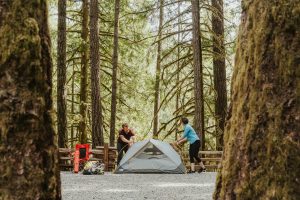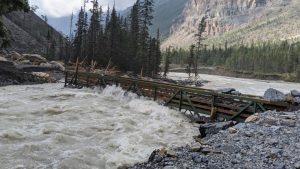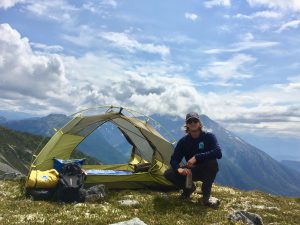Whitebark Pine Restoration in Mount Robson Provincial Park
Categories:
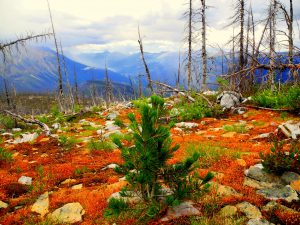
The whitebark pine is an extremely long-lived tree species that is found at the upper subalpine elevations. In 2010, the Committee on the status of Endangered Wildlife in Canada designated whitebark pine as an endangered species with “a high risk of extirpation from Canada” (COSEWIC 2010) due to the combined impacts of white pine blister rust, mountain pine beetle, climate change and fire exclusion/suppression. As a result, in 2012, the federal government added whitebark pine to the Species at Risk Act.
The greatest concern for the survival of whitebark pine is the fungus called white pine blister rust. This infection spreads from needles to branches and then to the main stem of the tree, cutting off nutrients to the cone producing branches and stopping reproduction. Most of the trees infected by the blister rust eventually die, but a small percentage survive.
In Mount Robson Provincial Park and along the popular Berg Lake trail, there are many stands of whitebark pine. Blister rust infection has been recorded since 2002. Current surveys in 2014 found over 90% infection rates in the stands around Berg Lake.This is bad news.
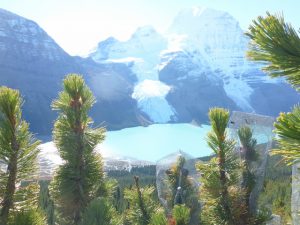
The good news is that BC Parks, in partnership with Parks Canada and with funding from the Society for Ecosystem Restoration in North Central BC and the Trans Mountain Legacy Fund, has been able to implement some of the recovery actions that are critical to maintaining the populations of whitebark pine that occur in the park.
In 2015, Parks Canada assisted in collecting cones from whitebark pine around Berg Lake. Approximately 6,000 seeds were collected and most of these are currently being grown into seedlings that will be planted in old burn sites in the park in 2017. Some of these seedlings will also be part of a research project that screens the seedlings for resistance to blister rust. This will contribute to our greater understanding of the species’ ability to adapt or resist this fungus infection. The remaining seeds from the 2015 cone collection will be directly planted around Berg Lake as part of a trial this summer. In the coming years, we plan to do more cone collection and planting of whitebark pine seedlings around Berg Lake and in partnership with Parks Canada and the recovery work they are doing in Jasper National Park.
We hope that the public will consider these species when they are in the alpine and especially when they are hiking in Mount Robson Provincial Park. The seedlings are extremely slow growing and sensitive to any soil disturbance. One step off the trail could dislodge a seedling and destroy the tree. Together, every seed we sow, seedling we plant, and careful step we take in the alpine will make a difference.


